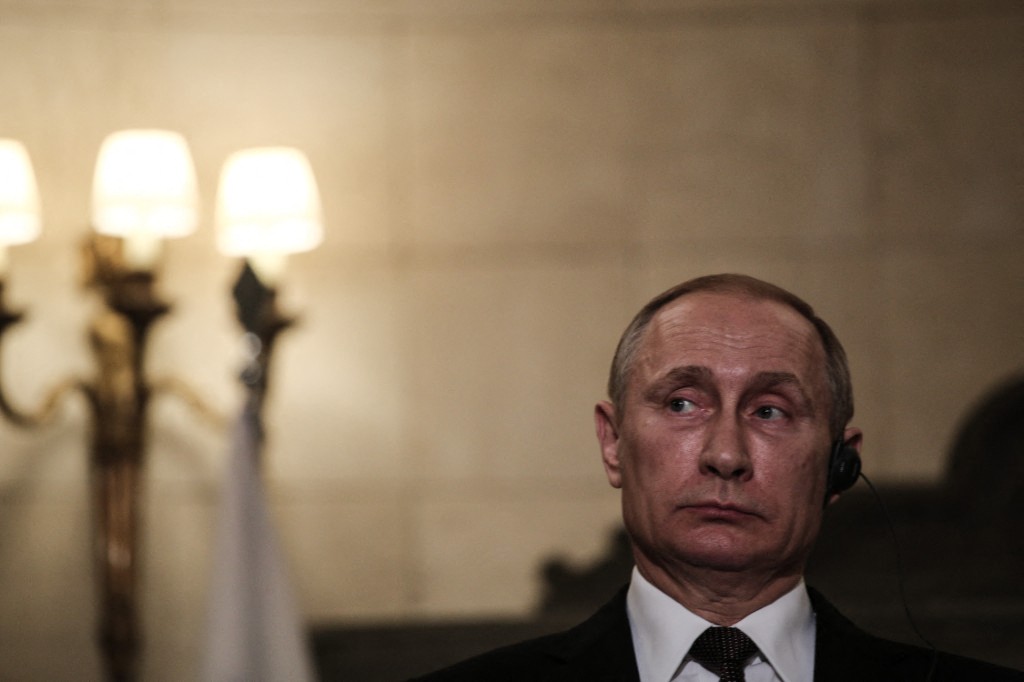No one knows exactly how or when the Ukraine war will end. But all realistic scenarios are now unfavourable to Kyiv. Serious assessments of Ukraine’s military, economic and social-political problems – now aggravated by the shocking corruption scandal at the top of the State – vary only in severity; none are positive. A Ukrainian “defeat” would have major perceived consequences for European security, albeit there is also much hyperbole on this point. Far more problematic would be the seismic shock that would hit Europe’s already-fraught politics as a result. This could well become Europe’s version of America’s vicious “Who lost China?” debate after 1949.
The China controversy was one of the most convulsive reckonings in early Cold War Washington. It erupted after Mao’s Communists won the Chinese civil war against American-supported Chiang Kai-shek and his Nationalists who retreated to Taiwan. In geopolitical and strategic terms it was seen as a vast, unmitigated disaster for US policy. Defeat for the West, victory for the Reds, the rest of Asia now up for grabs: A first-order debacle.
The deeper issue, though, was that all this occurred at the high-tide of domestic US strife and paranoia over Communist infiltrators and of “internal betrayal” narratives, when the entire nation was on edge. It was the time of McCarthyism and the Red Scare. Inevitably, the fall of a civilisation-state to communism was read not as an outcome of China’s internal decay but as the consequence of American weakness, naïveté, or even subversion within the State Department’s own ranks. (Plus ça change…)
What began as a foreign policy event quickly metastasised into a kind of domestic inquisition. The notion that the Chinese collapse might have been the product of wider and more complex forces – a defensible argument, in principle – never stood a chance. Instead of a sober search for accountability, the episode was cast as a preventable loss with blame laid squarely on those responsible for China policy, whose will and judgement had failed and whose loyalty laid perhaps elsewhere than with the American Flag.
The point here is that the reason why “Who lost China” turned into such a politically-damaging debate is because two separate things overlapped: the strategic failure and the political climate at home, in an atmosphere of tension, suspicion and national angst about the future.
Can we expect a similar “who lost Ukraine” debate to arise in the months or years ahead? Both elements noted above seem likely to occur in the case of the present war, as well.
First, to reiterate, “defeat” for Kyiv – at least in terms of global perception, in a narrative sense – is more likely than any genuine “victory”. The very existence of the initial 28-point plan – which was hard on Ukraine – suggests the advantage lies with Russia given that the US accepted the document in the first place and threatened Kyiv over it. For a moment, Europe got a preview of what losing to Putin might feel like.
Fortunately, there is now some hope of a partial reprieve. Many take comfort in the first draft allegedly being watered down in Geneva and Abu Dhabi. But the more acceptable these proposals become to European eyes, the less likely it is they will fly in Moscow. The belief that a revised text, if agreed by Ukraine, will put the ball in Russia’s court and bring Trump “back” fully into Ukraine’s camp, runs against previous experience. Besides, Moscow could always point to the original Witkoff-Dimitriev document as its best offer and dismiss any major changes as going against the deal signed off by the American side in Florida.
So, unless Russia magically and suddenly drops its core demands for no apparent reason – given that its relative position has been improving, not weakening – it seems that any negotiated end to the war at this point would be mostly on Moscow’s terms and be seen as a Putin victory. The only alternative is for Ukraine to keep fighting a slowly losing battle at mounting costs. It’s not clear that more European money would make any difference, either, given that the current downturn in the war, for example, is not due to under-funding or even lack of weapons but to other factors like manpower shortages and the Russian army’s own improving capabilities especially in drone warfare.
Either way, it seems that any kind of “hard peace” for Ukraine will inevitably be seen in terms of a defeat for itself but also for the West, particularly Europe. What of the political conditions that, in combination with a major geopolitical failure, could prompt the a “who lost China”-style debate?
On this point things are much simpler for they are obvious and a matter of daily experience. European politics is on the edge, divided more sharply than ever between the “liberal values” euro-elite globalists and the nationalist-populist insurgents. The Ancien Regime’s policy failures are piling high across the board, from immigration to the green agenda and the economy more broadly – not to mention Europe’s humiliating marginalisation in geopolitical affairs. It is against this background of incompetence, weakness and decay that the European establishment now clearly also “owns” the Ukraine policy, which is beginning to have the makings of the policy failure to end all policy failures.
In these conditions, given the trajectory of the war and Europe’s internal state, a “who lost Ukraine” debate appears inevitable unless the situation is somehow turned around by extraordinary, unforeseen events. The “defeat” narrative – even if not strictly justified – will likely take hold given how politically vulnerable the European establishment is to its opposition critics. And at that point the great political reckoning over the decisions taken by European leaders since 2022 will likely begin.
For the opposition, it will be a simple argument to make. These critics will say that the cost of Europe’s support for Ukraine has been enormous: Hundreds of billions of European taxpayer money handed over to Kyiv; European arsenals emptied to transfer ammunition and kit to the Ukrainian army; and the crippling blowback cost of sanctions on Russia, chiefly through the ensuing energy crisis which has triggered an accelerated de-industrialisation across the continent’s top economies including Germany’s. And, they will ask, what was the outcome of this policy? A country in ruins, rivers of blood, and a rearmed Russia grown vastly more dangerous, hostile and more powerful than before, set on perpetual “grey-zone” harassment of Europe, or worse.
Russia’s issue, critics of the establishment will say, was initially with Ukraine: A bilateral conflict. It was the West’s decision to join the conflict by proxy, despite having no treaty obligation to Ukraine, that put us on this ruinous path – or so the story will be framed. The fact that these non-arguments are daft, indeed outrageous, might not matter much. A perceived failure in Ukraine will simply re-set the political discourse and break the current overwhelming conformism to the “mainstream narrative” on the war. If Covid put wind in the sails of anti-establishment forces, the Ukraine war will put a hurricane.
What can be the future of the political class that would be seen, in this scenario, as having enabled such a catastrophe, that would be held responsible for all the costs and consequences for Europe of a policy that ended in a fiasco, as no doubt many will say? How much of this was “honest” misjudgement, they’ll ask, and how much of it was driven by euro-elite liberal ideology? And from this to a more chilling McCarthy-type interrogation over the loyalty of European elites – asking whether it lies with their own European people or with Ukraine – there is but a step. Such was, indeed, the dynamic of the China debate in the years after 1949; and its contours can already be perceived in our present case.
In turn, those in this prospective future “policy dock” will likely have three strands to their defence. First, they will blame Trump, as they already do. Second, they will double down: They will argue that their policies had been justified in moral terms as the “only possible response” to Putin’s invasion. The implication would be that a diplomacy-focused alternative – especially backing an early peace deal in Istanbul in March 2022 – would have been worse than engaging in a proxy war with Moscow. Third, they will try to say that it’s not a full defeat and therefore it was “worth it”; and since a negotiated peace deal will, at least initially, include some face-saving concessions to Ukraine, this is a card worth playing. These approaches may sound good and indeed proper on paper, but when the full post-war blame-game begins everything will depend on strong political leadership and disciplined strategic communications to control the narrative.
Of course, Donald Trump has been doing damage control in advance. The US policy of disengagement and the narrative re-defining of Ukraine as a “European problem” marginal to American interests can also be partly interpreted as Trump’s way of trying to avoid the 1949-style trap. Correspondingly, this leaves Europe bearing the full political costs if the worst happens in Ukraine. As the US has been winding down its involvement, Europe has been ramping up, taking ever more risks and exposing itself to a harder political fall. We must hope diplomacy will somehow deliver the equitable and even just outcome the brave Ukrainian people so deeply deserve; because, otherwise, “losing” Ukraine might just shatter European politics for years to come, with incalculable consequences.






Too big to fail? Saving Ukraine would cost Europe almost $400 billion